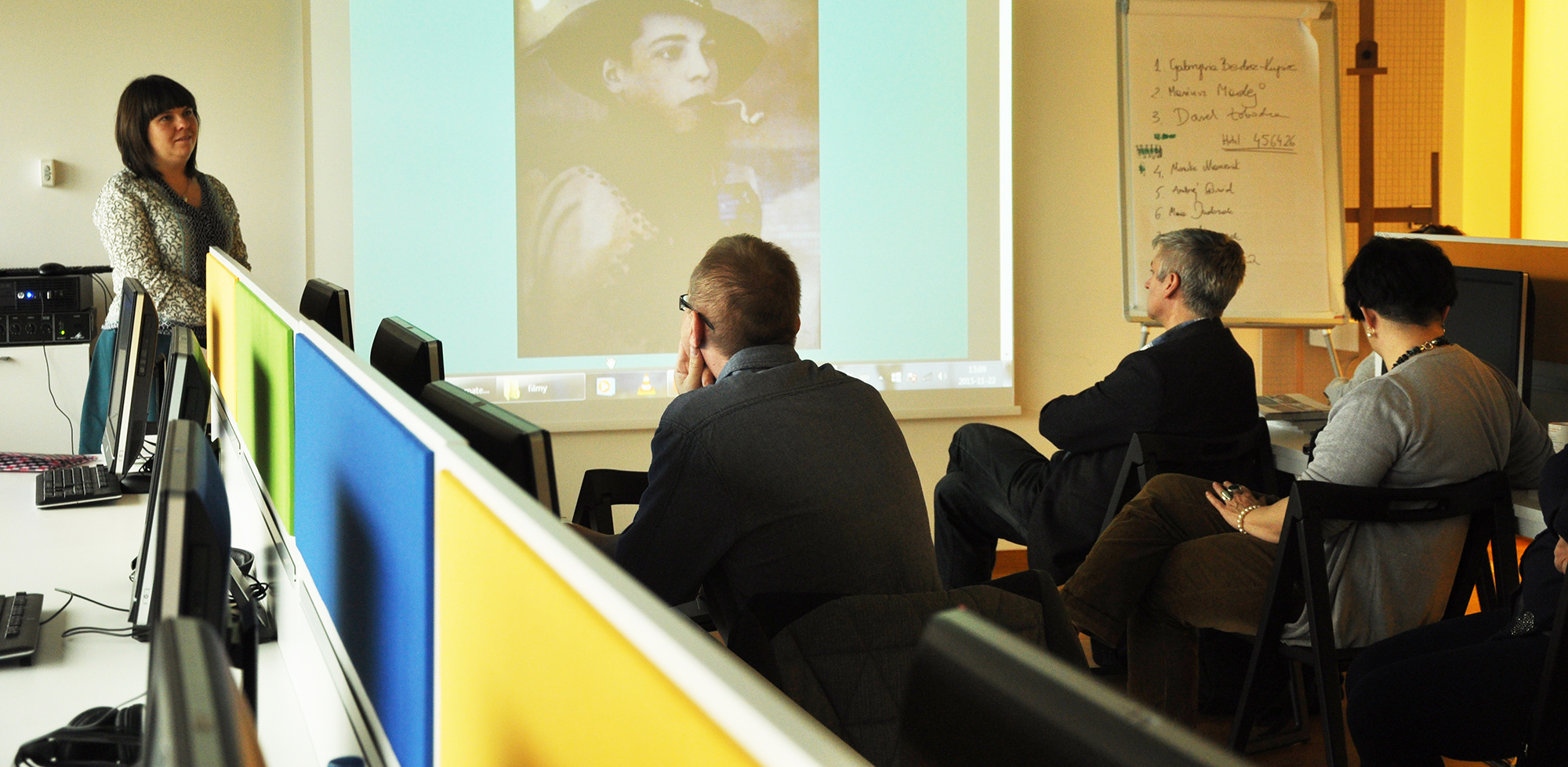Polish “Teaching with Testimony” Participants Impact Schools and Communities with Testimony-Based Lessons

The 2014 cohort of Teaching with Testimony in the 21st Century in Poland reunited to share the lessons they piloted in their classrooms over the past year, with impressive results.
At the initial session of USC Shoah Foundation’s professional development program Teaching with Testimony in the 21st Century (TWT), USC Shoah Foundation’s Polish regional consultant, Monika Koszyńska, introduces local educators, chosen from a competitive application process, to the methodologies of teaching with testimony from the Visual History Archive. The teachers then develop their own unique classroom lessons and activities, which they pilot over the next year. The follow-up session a year later is an opportunity for the cohort to share their lessons and outcomes with each other and discuss best practices.
Ten members of the 2014 Teaching with Testimony cohort – the third year the program has been offered in Poland – reunited at the POLIN Museum of the History of Polish Jews Nov. 21-22, 2015. Their initial TWT training session was held Nov. 9-14, 2014.
One of the projects, conducted by teacher Monika Matusiak, was dedicated to the local history of Białystok. During a city-wide event, her students gave public readings of stories of Jews who were in the Ghetto and showed the public where the Białystok Ghetto was situated. She was very positively surprised by the Białystok media’s coverage of the event and how people were touched by it.
Teacher-librarian Iwona Macioszek decided to fight against homophobic comments that are very openly made by her students at her vocational high school in Toruń. She found in the Visual History Archive a clip of Polish-Jewish gay survivor from Toruń and decided to use it in her lesson. Sadly, the lesson had to be postponed because her students refused to discuss homophobia and protested against the lesson. However, they have decided to continue and Iwona will lead the lesson later this month.
Two projects are dedicated to post-war history of Poland, particularly to the March 1968 anti-Semitic campaign and compulsory emigration of thousands of Polish Jews – survivors of the Shoah and their children, the majority of whom were students of Polish universities. One of these two projects was filmed and discussed as an example of good practice during an educational conference for historians organized at Mikołaj Kopernik University in Toruń.
Darek Łoboda, French language teacher at a high school in Włocławek, used the testimony of one of the school’s former students, Maria Jakubowicz, in his lesson.
Another very interesting and demanding project was realized by Olga Gronowska-Pszczoła, who works with boys at Youth Educational Center, a center aimed at resocialization of young men. Olga has two goals that are the most important in her pedagogical philosophy. First of all, she teaches young, underprivileged boys that they have to be responsible for themselves and for the world around them, and second, that they must accept people who are different from them. She decided to show “her boys” – that is the name she uses while talking about her students – places connected with Polish-Jewish history in Warsaw and to talk with them about the Shoah as about the time when “good people did not do enough.”
Koszyńska said the two days of presentations gave all the participants hope for the future: that Polish educators are ready to change the world for the better even in the face of rising racism, xenophobia and nationalism in their country.
Like this article? Get our e-newsletter.
Be the first to learn about new articles and personal stories like the one you've just read.